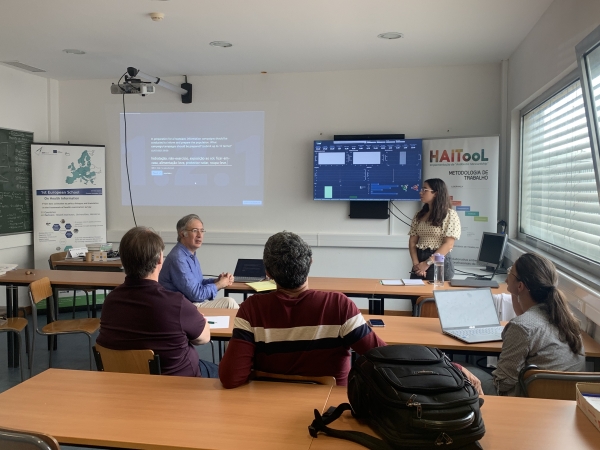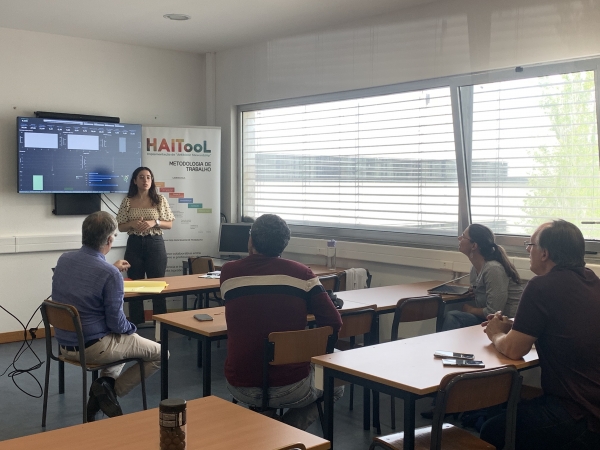Heatwave in 2025: Emergency Response Simulation
On the morning of October 13, 2023, a high-risk simulation was moderated by student Bárbara Pais. In a high-stakes simulation conducted on the morning of October 13, 2023, experts and representatives from critical agencies gathered in the DiSHC Lab Situation Room to address a daunting heatwave scenario predicted to strike the Lisbon and Tagus Valley (LVT) Region in July 2025. This realistic exercise aimed to prepare for an extreme seven-day heatwave of severe proportions with temperatures exceeding 40°C for an extended period and several alarming factors challenging emergency response efforts.
The simulated situation closely mirrors the events that unfolded on July 1, 2025, when a severe heatwave was forecasted to impact the LVT Region in three days. IPMA (Instituto Português do Mar e da Atmosfera) quickly detected this impending crisis, triggering a series of actions to mitigate its effects. However, the situation soon escalated, lasting longer than expected and presenting various unforeseen challenges.
The emergency response group received an overall score of 77% for their performance in this challenging scenario. This indicates a solid response to the crisis but highlights areas where further improvement is needed, especially when dealing with prolonged and evolving emergencies.
While the event was a simulation, it underlines the significance of preparing for extreme weather events, particularly in the face of the growing threat of heat waves exacerbated by climate change. By practising and refining their emergency response procedures, agencies and experts are better equipped to protect public health and safety when faced with real-life heatwave crises.
Key highlights from the simulation
Heatwave Severity: The exercise replicated a seven-day heatwave with daily maximum temperatures soaring above 40°C. This prolonged extreme heat created an urgent need for swift and coordinated responses.
Interagency Collaboration: The simulation involved public health experts representing the IPMA, DGS (Direção-Geral da Saúde), ANEPC (Autoridade Nacional de Emergência e Proteção Civil), and CML (Câmara Municipal de Lisboa). These key agencies worked in unison to navigate the complex challenges posed by the heatwave, emphasising the importance of interagency coordination in such situations.
Impact on Healthcare Facilities: As the heatwave extended, healthcare facilities faced a surge in patients suffering from heat-related illnesses. The group examined the readiness of healthcare infrastructure and the adequacy of health policies to manage this influx. Cooling centres and other emergency measures were evaluated for their effectiveness.
Unforeseen Factors: The simulation introduced unexpected elements that compounded the crisis, mirroring the unpredictable nature of real-life emergencies. This included factors such as power outages, water shortages, and logistical challenges, forcing participants to think on their feet and adapt their strategies.
Gallery



